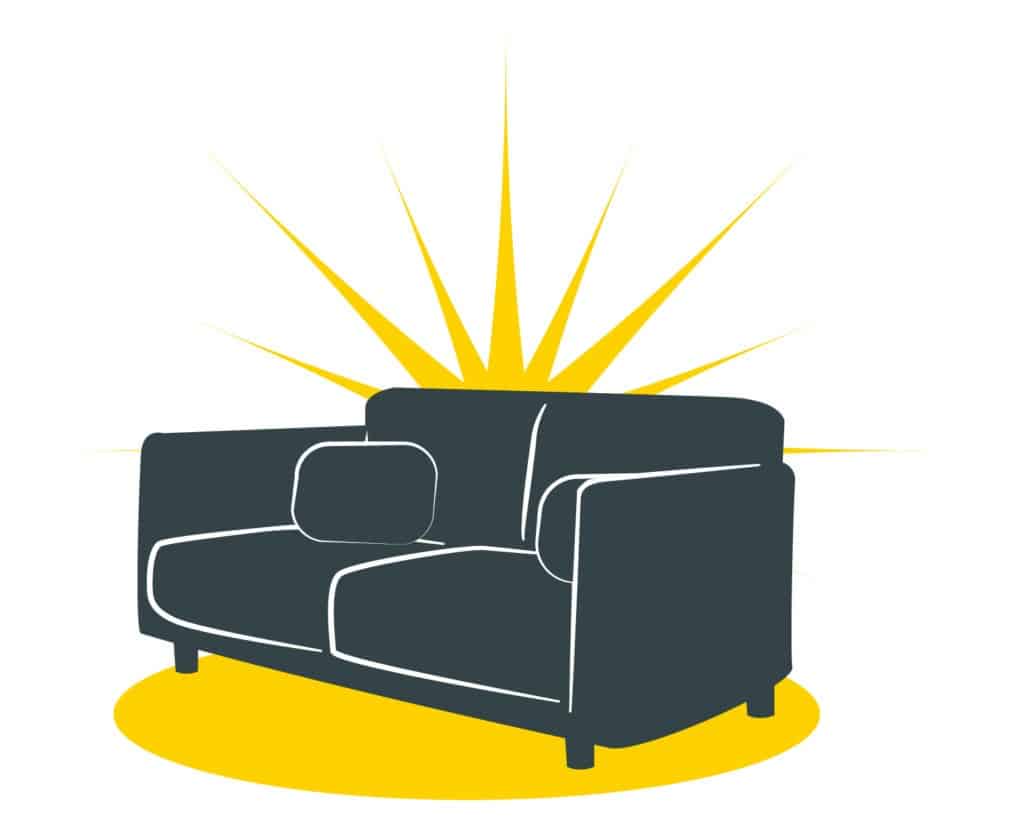How Spirituality and EMDR Synergize Healing

Are spirituality and EMDR mutually exclusive? Does one have to exist without the other? Do they have to compete?
In short and in true counseling fashion-it’s up to you! The client is the guide, or rather you have to decide. In my professional opinion, they work best in tandem. I want to first conceptualize each, second breakdown what a combination looks like, and third offer considerations based on my experience combining the two: conceptualize, combine and consider.
EMDR Treats Trauma, but How Do I Define Trauma?
First, EMDR was developed to treat trauma. We have normalized this word way beyond its clinical weight. So, let me just quantify this. In therapy we refer to “big T trauma” (e.g. objective traumatic experience such as a car accident including a major injury or fatality) and “little t trauma” (e.g. subjective traumatic experience such as playing the scapegoat role in one’s family dynamic). Ultimately, trauma is less about what happened and more about how your nervous system interprets what happened. If your nervous system interprets what happened as a traumatic threat at clinical levels, you will notice the following symptoms: hypervigilance (always on guard, waiting for the “emergency shoe” to drop), avoidance (“don’t drive past that area even though it’s the most direct way; I can’t bear to see that area”), nightmares, flashbacks, intrusive thoughts, physical reaction in the body when exposed to triggers of the trauma (shaking, increased blood pressure), difficulty concentrating and even sleeping (I want to avoid my nightmares so I don’t sleep; I can’t sleep deeply, it’s not safe), more persistent irritability (constantly rehashing things just puts me in a perpetual bad mood), exaggerated startle response (simple door opening makes me reflexively jump like a Halloween cat), functional impairment (not able to work as much as you may have before) and in some cases dissociation, or checking out from reality in a daydream all the way down the spectrum into a spontaneous age regression.
That’s Trauma, but How Does EMDR Apply?
My point in explaining all of this is that EMDR is utilized to reduce these symptoms in application. In application EMDR helps recalibrate the nervous system. Some EMDR clinicians will conceptualize EMDR in a framework that includes theories about the nature of our nervous systems, but I cannot emphasize enough that the application of EMDR does not require subscribing to any theory of how our nervous systems originate (evolution v. God, etc). What I mean is, any theory, including various spiritual perspectives, can work in tandem with the application of EMDR. Whatever theory is brought in, the application of EMDR works the same, consistently. Think of this as insulin and diabetes. Regardless of your worldview, insulin injections can help control sugar. Insulin injections know no spirituality. Still, insulin does not address the impact of a lifetime dependency and all the emotional and spiritual considerations that come with managing diabetes, like counting sugars your entire life, not feeling safe to go anywhere without insulin, financial burden, feeling isolated from your peers, etc. Conceptualize: EMDR application and technique is consistent regardless of one’s worldview.
Can Spirituality Support EMDR’s Purpose?
Second, combining EMDR and spirituality. One thing evident in the counseling world up to this point succored by research as well as observation is that clients who participate in therapy and include their spirituality in their sessions (note: their spirituality, not any specific spirituality) have more positive outcomes. While there are opinions as to why, there is no empirical evidence to determine causation that I am aware of, still the correlation is clear. That said, if spirituality makes for better chances of therapy working, so to speak, then let’s combine them. Give therapy its best chance. The lovely component of EMDR is that it hinges on core beliefs. So, bringing in a belief system is basically going on already in the technique and design. Incorporating spirituality is easy; it just requires intention. For those of you who know about EMDR experientially this will sound familiar, but I want to take a moment to explain for those who don’t: the “protocol” or essentially the steps of EMDR explicitly solicit “What is the negative belief you have about yourself?” related to traumatic memory and “What would you prefer to believe about yourself?” as you work toward healing.
And Visa/Versa: Can EMDR support Spirituality’s Purpose?
Anyone with any kind of devout spirituality knows that the way one conceptualizes God, the universe, him or herself and the way they are all (or not) related knows that if you want to have a coherent worldview, then what you believe on this grand scale should vibe with what you believe about yourself. When they do not align, for example, “I am not good enough” (personal belief about self) conflicts with “God unconditionally loves me which speaks to my worth,” (worldview beliefs)-enter internal distress. It’s like they are going in different directions but embodied in one person. And, usually personal beliefs and subjective experience override any kind of abstract belief which will ultimately call the belief system into question (I will speak to that later in this blog). The tension leads to guilt and further down the rabbit hole we go. Combining spirituality and EMDR explicitly in treatment can tremendously relieve this internal distress. Combine: EMDR coupled with spirituality in treatment can give way to more thoughtful approaches to your life including more coherence with your personal behaviors and your worldview.
What Is A Real Life Example of Combining EMDR and Spirituality?
I can give an example of a Christian client participating in EMDR. The negative belief was “I’m not safe,” and while the intensity of the belief reduced, it just would not go away completely (which is the often realized goal in EMDR treatment). After incorporating spirituality, what became very clear was a concern for eternal safety, the question shifted from “Am I safe,” to “Am I saved? Is my soul really safe forever? Even though this worldview makes the most sense to me, can I really believe it?” After more reprocessing with a new, more nuanced negative belief, that is, adjusting the negative belief from “Am I safe?” to “Am I eternally safe?” the intensity of the belief was, in fact, resolved completely. Explicitly combining spirituality and EMDR not only reduced PTSD symptoms, but ultimately the client’s relationship with God broke through barriers and grew exponentially. What became clear was that events in real time negatively affected this person’s ability to relate to God. EMDR helped break some of those barriers. EMDR and spirituality can absolutely be combined.
EMDR Cannot Solve the Problem of Evil
Third, considerations. Different worldviews tend to conceptualize healing differently in the details, and I think most would suggest EMDR is not enough to reach full healing, enlightenment, nirvana, etc. EMDR is not enough to save your soul or give you peace about the non-existence of God or anything in between. EMDR is a tool to treat trauma symptoms. The truth is, once those symptoms are relieved, you are still human. Existential questions still loom and you still have to decide what you believe about your inevitable death and the deaths of your loved ones and how that impacts how you want to live this life you have, now. You will still have conflict in your life, bad relationships, make poor choices, follow the lie of self-indulgence despite knowing better and realizing just how out-of-control you actually are and hate it, experience guilt and so on. I would venture to say that no therapy, no style of it, no specific therapist, no length of it, none can completely relieve the human condition. As people, we cannot escape suffering. In the West, we sure do try to convince ourselves that we can and may even buy into the idea that we are not supposed to suffer, but that is another blog entirely. My point is, we will suffer, and no amount of EMDR can change that.
EMDR Can Incorporate Your Spirituality (ie, by proxy helps with existential questions)
So, how one understands suffering, or theologically “the problem of evil,” this is a spiritual question that we each have to ask on our own in its right time and make decisions for ourselves of how that problem is ultimately remedied. What I want people to consider is that if you answer that question with a deep faith you can bring that into EMDR treatment without dishonoring your belief system; you can incorporate your belief system. And if you try, and you still feel like it’s wrong, we can address that negative belief with EMDR, too! Or, you can adjust and drop it. I would just ask the traumatized person to consider combining EMDR and spirituality before dismissing EMDR because of spirituality, and trust God and your spiritual community to help guide you. That is consideration number one.
EMDR Can Support Spiritual Development
Consideration number two is EMDR can be used for spiritual discord or crisis of faith. For example, if a person has a plateau in faith and new, big roadblocks are coming up but there is not necessarily a traumatic memory that a person can point to and say “This is why I don’t believe in God anymore,” he or she can utilize EMDR to address the shift. For that matter, having a specific moment in time such as losing a child in a car accident and losing faith thereafter can also be treated with EMDR. That said, while EMDR does use moments in time, or memories, to explore the nervous system and find the glitch treatment does not always start with a clear memory or moment. This is common in the “little t trauma” I mentioned earlier. Many people experience PTSD symptoms but they cannot identify the moment that inspired these symptoms. What we know now is that this is explained by the phenomenon of interpretation: trauma is not defined by what happened but how you interpret what happened.
EMDR Can Help Despite Absence of Specific Memory
So, like a fish not knowing it’s in water, one may not at first clearly identify a pivotal moment, because it appears like all the other moments in time, colored by a consistent interpretation. The interpretation is off, but if everything is interpreted by the same pretext, then the “offness” is not always clear. This is part of the therapist’s job, to help clients explore and uncover what critical memories are the foundation of a specific interpretive style. I digress, but I hope people will consider this second point: if you are having a crisis of faith without a clear traumatic memory, EMDR can help with that too, and you can bring your belief system in to work in tandem with EMDR. They are not mutually exclusive.
Please Don’t Rule The Combo Out
To wrap it all up, I want to finish with an anecdote. I spent time living in Alaska working on a whale-watching tour boat as a deckhand before committing to a career in counseling. I was fascinated by how the boat worked behind the scenes. There is so much passengers do not know about as they are floating along… But one thing we went over in our training was how to patch the boat if an unexpected leak happened. We had to learn how to patch it in order to make it back to port, then work on it more intensely once we were docked. EMDR reminds me of the patch. Without it, you cannot stay afloat. But it’s not a permanent fix. The deeper sufferings of life require a deeper treatment, a soul treatment. But EMDR does a really good job to help relieve PTSD symptoms and keep you afloat. Another note of the metaphor is that once the boat is docked and you repair the leak, you do not just take the patch off. For many of these projects, the patch stays on while technicians do the overall repair, because they cannot repair when water is pouring into the boat. EMDR and spirituality can work together, in tandem, for symptom relief and for soul treatment.
Final Thoughts…
… I just want to footnote that I realize this blog is at the risk of oversimplification. “Treating trauma” is just not powerful enough language to convey how intense the process actually is. Likewise, “spirituality” is so charged, and that word does not convey the power of what it represents. I want people who read this to know that I do not take either lightly, and no part of this blog is meant to oversimplify or disrespect pain, suffering and healing. Moreover, while this blog was motivated to address the question of whether Christians can seek counseling outside of Biblical Counseling, I hope the principles apply to anyone devout in any worldview. Speaking with my certified Biblical Counselor hat on, I also hope that Christians will consider EMDR as a tool maybe from God and not a replacement for God. He is the healer Who allows different forms. And even if you do not agree with that, EMDR can help you, too. Thank you for reading.
Schedule an appointment with therapist and author of this blog, Hope Stanley

Authored by Hope Stanley
Thanks for contacting us!
We will be with your shortly and you should expect a response within 1 business day.
